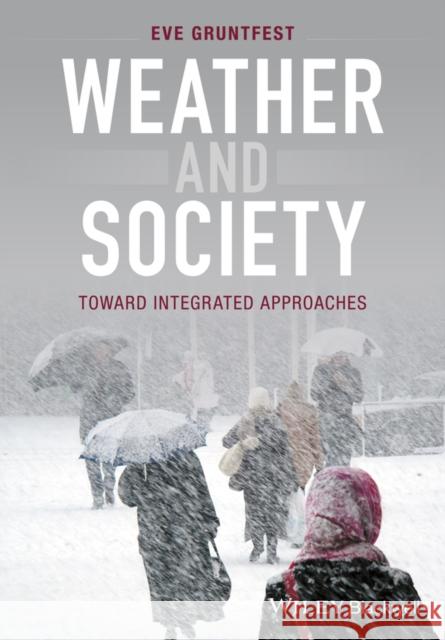Weather and Society: Toward Integrated Approaches » książka
Weather and Society: Toward Integrated Approaches
ISBN-13: 9780470669846 / Angielski / Miękka / 2018 / 232 str.
There is a growing recognition from academia, government, the private sectors, and the non-governmental sectors that integrated thinking and problem-solving across disciplinary boundaries is required to effectively address societal impacts issues in meteorology and hydrology. Within the weather and climate arena many early career physical and social scientists and engineers seek to learn about concepts, tools, questions, and policies related to more than one discipline but most academic departments, especially in meteorology and hydrology, are too narrow to allow much leeway for electives outside of their narrowly defined discipline. Weather and Society: Integrating Social Science provides comprehensive coverage of a new evolving problem-solving set of approaches to weather and climate issues that successfully integrates social science concepts and methodologies into weather and climate research and practice.This text has developed from the work undertaken through the WAS*IS movement (Weather and Society- Integrated Studies group) Designed to meet the growing demand from National Weather Service employees, international graduate students, hydrologists and other parties interested in understanding the societal impacts that can enhance their work as practitioners or researchers, this book provides the first interdisciplinary approach to the subject of weather, climate and society. Dr Gruntfest is the director of a new program at the University of Oklahoma called SSWIM (Social Science Woven into Meteorology). Increasingly she receives inquiries from National Weather Service employees, international and domestic potential graduate students, hydrologists, and others who recognize that some understanding of social science and societal impacts can enhance their work as practitioners, researchers or students. They also realize that it is difficult to find reference materials or courses to meet their need within the traditional university departments of meteorology, atmospheric science, hydrology, or even physical geography.
There is a growing recognition from academia, government, the private sectors, and the non–governmental sectors that integrated thinking and problem–solving across disciplinary boundaries is required to effectively address societal impacts issues in meteorology and hydrology.











